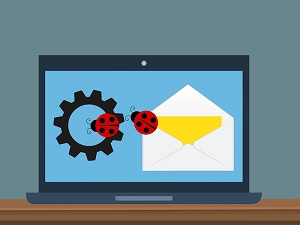 Hackers Are Pretending To be Chipotle In Poisoned Emails
Hackers Are Pretending To be Chipotle In Poisoned Emails
Chipotle recently reported that an account used by their company's marketing department had been hacked. A currently active campaign is underway leveraging this account.
The hackers are sending out phishing emails containing poisoned links. A recipient clicking on these links will be directed to a malicious website designed to prompt users for a wide range of personal information so the hackers can harvest it.
Leveraging legitimate compromised email accounts is the preferred routine for hackers. Statistics show that only 2-3 percent of phishing emails sent from spoofed accounts are effective in luring recipients to click links. Hacking a legitimate email account and using it for the same purpose more than doubles the likelihood that a recipient will click embedded links and/or download attached files.
Most of the hackers launching these types of campaigns include the Chipotle hackers. They send emails pretending to be a Microsoft Team Member and usually associated with Office 365.
The poisoned links included in such messages point back to a dummy Microsoft login page controlled by the hackers. Anything a recipient enters on this page will be harvested by the hackers and used against those who fall victim to this ploy later.
The email security company Inky reported that the Chipotle email address in question had been used to send more than a hundred tightly targeted phishing emails over a three day period. A spokesman for Inky observed that almost everyone has a Microsoft login and a significant portion of internet users use the same password across multiple websites. Hacking the Microsoft login is the option of choice for most hackers.
Chipotle has since regained control over that account but the threat remains. Given the sheer number of corporate email addresses in use today it is all too easy for one of them to become compromised and put hundreds or even thousands of people at risk.


